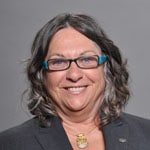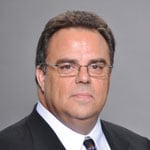B
Vice President, Bus Department –
Sen. Patty Murray, a Democrat from Washington State, is the new chairperson of the Senate Budget Committee, which makes decisions on how much of the annual federal budget is available for transit.
As chairperson, Sen. Murray will set the agenda and tone of Senate Budget Committee hearings and have substantial influence on committee’s Democratic majority.
We know Sen. Murray as a strong proponent of transportation investments, and a friend of organized labor. One Capitol Hill insider commented that being committee chairperson “will put her in a very powerful position to craft the entire federal budget.” A veteran Seattle transportation journalist said Sen. Murray has a 20-year history in the Senate of supporting federal transportation appropriations for local transportation projects.
Sen. Murray has consistently won endorsements from the UTU, and National Legislative Director James Stem and Alternate National Legislative Director John Risch have a close working relationship with her and her senior staff.
In this era of tight federal budgets and assaults on transit funding by conservative lawmakers, we will depend on labor friendly and transit friendly lawmakers such as Sen. Murray to defend and advance funding for local, state, regional and national transit funding.
November elections increased the number of labor-friendly members of the Senate and the House, and much of the credit goes to UTU members who contributed to the UTU PAC and who participated in get-out-the-vote drives nationwide.
